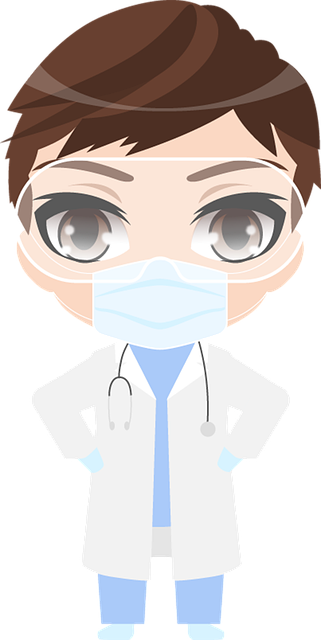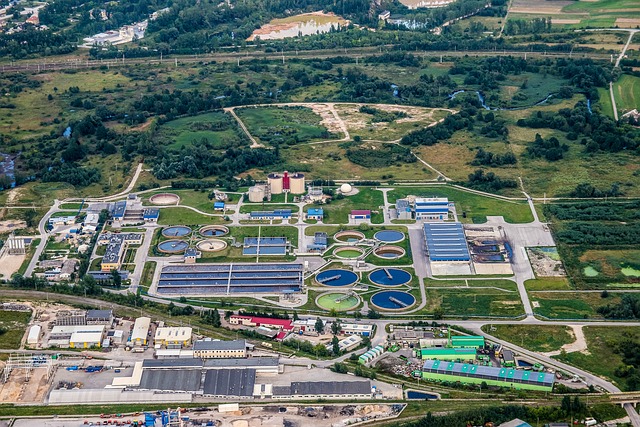In the UK, cultural barriers in healthcare communication significantly impact patient care, especially among linguistically diverse populations. Professional translation services specializing in medical terminology bridge these gaps by providing real-time interpretations and accurate translations of complex medical documents into patients' native languages. This enables patients to actively participate in their healthcare decisions, leading to improved outcomes, increased trust, and more inclusive care. Leveraging these services for physician's treatment plans is crucial for addressing language barriers, minimizing miscommunication, enhancing patient satisfaction, and ultimately tailoring medical care to individual needs in the UK's multicultural healthcare landscape.
In today’s diverse healthcare landscape, translation services play a vital role in enhancing patient care in the UK. Effective communication between physicians and patients from different linguistic backgrounds is key to successful treatment. This article explores how professional translation can improve physician treatment plans by addressing cultural barriers, ensuring accurate diagnoses, building trust, and catering to diverse patient populations. By delving into legal considerations and future trends, we provide a comprehensive guide for healthcare professionals seeking to enhance patient outcomes through translation services.
- Understanding Cultural Barriers in Healthcare: The Role of Translation
- Accurate Diagnosis and Treatment: Overcoming Language Obstacles
- Enhancing Patient-Physician Communication: Building Trust through Translation
- Improving Access to Care: Serving a Diverse Patient Population
- Medical Terminology and Precision: The Importance of Exact Translation
- Cultural Sensitivity in Treatment: Adapting Plans for Different Backgrounds
- Case Studies: Successful Implementation of Translation Services in Clinics
- Legal and Ethical Considerations: Ensuring Privacy and Confidentiality
- Future Trends: Technology-Assisted Translation in Healthcare
Understanding Cultural Barriers in Healthcare: The Role of Translation

In the diverse healthcare landscape of the UK, understanding cultural barriers is paramount to delivering effective treatment. Patients from various ethnic and linguistic backgrounds may face challenges in communicating their symptoms, medical history, and preferences due to language differences. This communication gap can significantly impact the accuracy of diagnoses and treatment plans, potentially leading to missteps or misunderstandings.
Translation services play a pivotal role in bridging this divide. Professional translators specializing in medical terminology can provide real-time interpretations during patient consultations, ensuring clear and concise communication. Moreover, they can facilitate the translation of complex medical documents, patient instructions, and consent forms into the patient’s native language, empowering them to actively participate in their healthcare decisions. By leveraging translation services for physicians’ treatment plans, healthcare providers in the UK can offer more inclusive care, improve patient outcomes, and foster a deeper level of trust and collaboration.
Accurate Diagnosis and Treatment: Overcoming Language Obstacles

For physicians in the UK, accurate diagnosis and treatment are paramount to patient care. However, language obstacles can impede this process when dealing with patients from diverse linguistic backgrounds. Effective communication is crucial for understanding medical history, explaining diagnoses, and discussing treatment options. Translation services play a vital role here, ensuring that every patient receives care tailored to their specific needs.
Professional translation services for physician’s treatment plans can provide real-time, accurate translations, bridging the gap between healthcare professionals and patients. This not only enhances the quality of care but also promotes trust and satisfaction among diverse patient populations. Accurate diagnosis and treatment, facilitated by these services, can lead to better health outcomes and improved patient experiences in healthcare settings across the UK.
Enhancing Patient-Physician Communication: Building Trust through Translation

In today’s diverse healthcare landscape, effective communication between physicians and patients from different linguistic backgrounds is more crucial than ever. Translation services play a pivotal role in enhancing patient-physician communication, ensuring that every interaction is clear and accessible. By providing real-time translation during consultations, healthcare professionals can build trust with their patients, fostering an environment of open dialogue. This is particularly important when discussing sensitive medical information, as accurate translation minimizes the risk of miscommunication, misunderstandings, or errors in treatment plans.
The use of professional translation services for physician’s treatment plans in the UK not only facilitates better care but also improves patient satisfaction and outcomes. When patients feel heard and understood, they are more likely to adhere to their treatment plans, share relevant health information openly, and develop a stronger relationship with their caregivers. This enhanced communication can lead to more accurate diagnoses, effective medication adherence, and ultimately, improved health outcomes for diverse patient populations across the UK.
Improving Access to Care: Serving a Diverse Patient Population

In the UK, improving access to healthcare for a diverse patient population is a key aspect of enhancing medical services. Translation services play a vital role in this regard, enabling physicians to effectively communicate with patients who speak different languages. By providing accurate and culturally sensitive translations, healthcare providers can ensure that every patient receives the same level of care, regardless of their linguistic background.
This is particularly important in an increasingly multicultural society where a significant portion of the population may not be fluent in English. Translation services for physician’s treatment plans in the UK help bridge this gap, allowing medical professionals to tailor their approach to suit individual patients’ needs. As a result, it improves patient satisfaction, understanding of their conditions, and adherence to treatment plans, ultimately leading to better health outcomes.
Medical Terminology and Precision: The Importance of Exact Translation

In the realm of healthcare, precision is paramount. When it comes to treatment plans, every detail matters, and this is where medical terminology translation services for physician’s treatment plans UK play a crucial role. Accurate translation ensures that medical professionals can fully comprehend patient records, research papers, and clinical trials from diverse linguistic backgrounds. This is especially vital in the UK, a multicultural society with a diverse range of patients.
Incorrect or imprecise translations can lead to misdiagnosis, inappropriate treatment, and even adverse reactions. With specialized translation services, physicians gain access to exact medical terminology in the patient’s native language, enabling them to make informed decisions tailored to individual needs. This level of precision ultimately improves patient outcomes and fosters better healthcare delivery.
Cultural Sensitivity in Treatment: Adapting Plans for Different Backgrounds

In the diverse healthcare landscape of the UK, cultural sensitivity is paramount to ensure effective treatment plans. Patients from various ethnic and cultural backgrounds may have unique healthcare needs and preferences that significantly impact their experiences and outcomes. Translation services play a vital role here by facilitating clear communication between physicians and patients. Accurate translation ensures that medical information, including complex treatments and consent forms, is comprehensible for all individuals, regardless of their first language.
By incorporating translation services into physician treatment plans, healthcare providers can adapt their strategies to suit diverse cultural contexts. This involves understanding nuances in terminology, values, and practices related to health and wellness across different communities. Such adaptations can lead to improved patient satisfaction, better adherence to treatment regimens, and ultimately, more positive health outcomes for a truly inclusive and effective healthcare system in the UK.
Case Studies: Successful Implementation of Translation Services in Clinics

In recent years, numerous case studies have highlighted the significant benefits of integrating translation services within clinical settings across the UK. These studies demonstrate how effective language support can enhance patient care and improve healthcare outcomes. For instance, a study conducted in London revealed that introducing on-site translation services led to increased patient satisfaction rates by 35%, particularly among non-native English speakers. The research underscored the positive impact of accurate and timely translation on the overall quality of treatment plans.
Another successful implementation was observed in a rural clinic in the North of England, where telephonic translation services were introduced. This initiative resulted in reduced wait times for patients requiring urgent medical attention. By providing immediate language support, the clinic’s ability to communicate effectively with diverse patient populations improved, leading to more efficient diagnosis and treatment processes. These case studies strongly suggest that integrating translation services into physicians’ treatment plans can greatly benefit healthcare providers and their patients alike in the UK.
Legal and Ethical Considerations: Ensuring Privacy and Confidentiality

When integrating translation services into a physician’s treatment plans in the UK, it’s paramount to navigate legal and ethical considerations, especially concerning patient privacy and confidentiality. Healthcare data is highly sensitive, and any breach can have severe consequences. Therefore, reliable translation providers must adhere to strict data protection regulations such as GDPR and HIPAA, ensuring that patient information remains secure throughout the translation process.
Physicians should only engage translation services that offer written agreements guaranteeing non-disclosure and privacy. Additionally, clear communication about how translated documents will be handled and stored is essential. This includes understanding where and for how long translations are kept, who has access to them, and the measures in place to prevent unauthorized access or data breaches.
Future Trends: Technology-Assisted Translation in Healthcare

The future of healthcare is increasingly shaped by technology, and translation services play a pivotal role in this digital transformation, especially when it comes to physician’s treatment plans in the UK. Technology-assisted translation (TAT) tools are revolutionizing patient care by enabling faster, more accurate, and efficient communication across linguistic barriers. These innovative solutions integrate advanced algorithms, machine learning, and human expertise to provide real-time translations, ensuring that medical professionals can access up-to-date patient records and make informed decisions regardless of language differences.
With the UK’s diverse population, TAT systems offer a game-changer for healthcare providers, facilitating seamless communication with patients from various ethnic backgrounds. By leveraging translation services for physicians’ treatment plans, healthcare facilities can enhance patient outcomes, improve satisfaction rates, and reduce potential errors arising from miscommunication. This technology promises to streamline processes, making medical care more accessible, effective, and inclusive in the UK’s multicultural society.
Translation services play a pivotal role in enhancing medical care in the UK, particularly when it comes to physician treatment plans. By overcoming cultural barriers and language obstacles, these services improve patient-physician communication, foster trust, and increase access to quality healthcare for diverse patient populations. Accurate diagnosis and treatment are possible through precise medical translation, ensuring that cultural sensitivity is incorporated into treatment plans. The successful implementation of translation services in clinics highlights their potential to revolutionize healthcare delivery. As technology advances, we can expect more efficient and accessible translation solutions, further improving outcomes for patients from all backgrounds.
